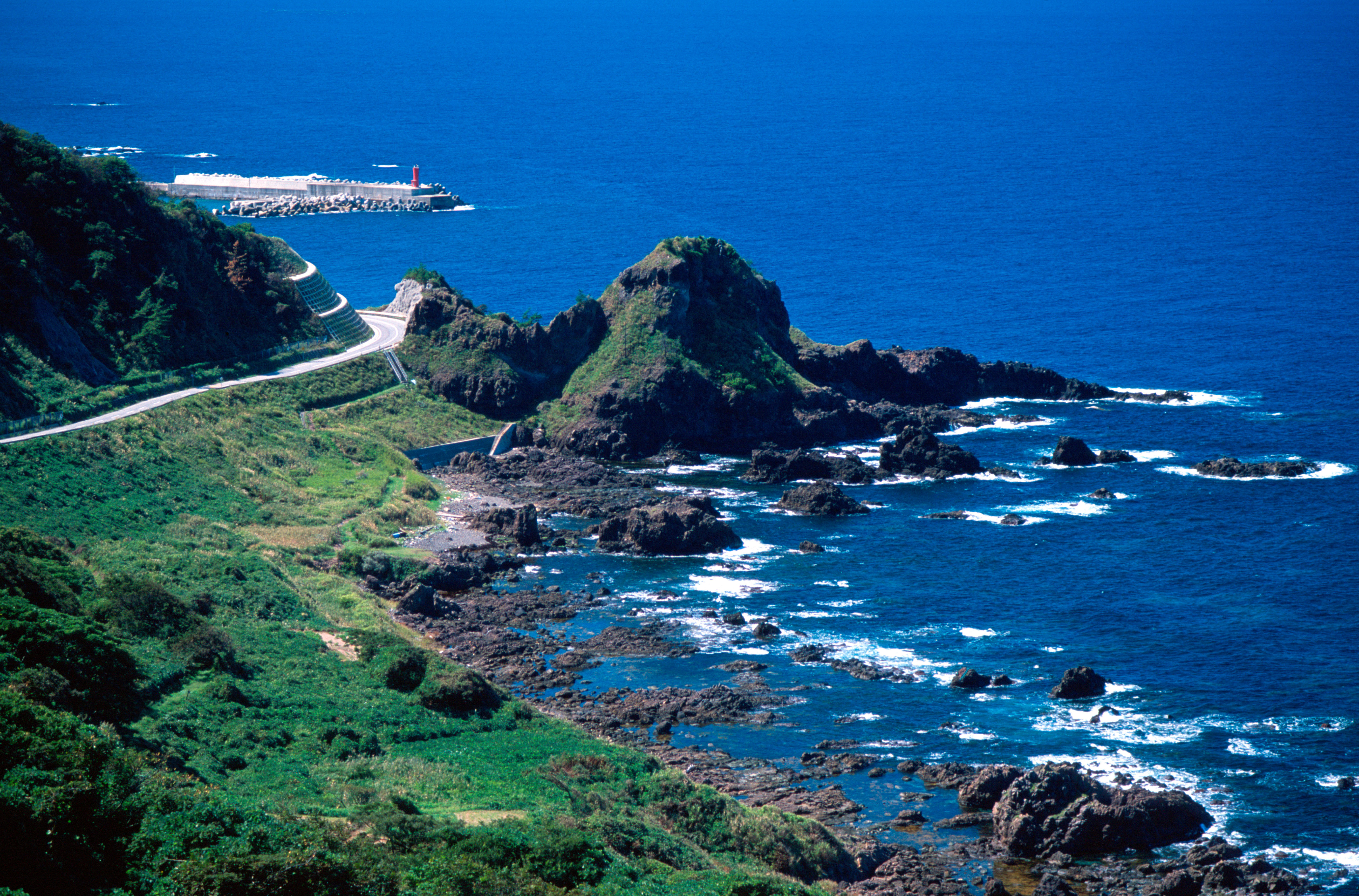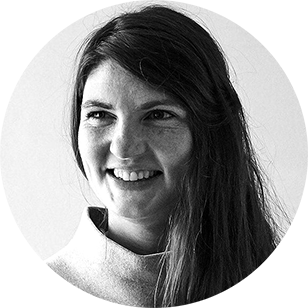The pure joy of driving in another country
Trains are great, but having your own set of wheels and an open road can mean endless adventures


"Wait, wait ... do you hear that?" my husband asks. We're driving north toward the Noto Peninsula, a little thumb jutting out of Ishikawa prefecture on the western side of Japan. As our car passes over a random combination of grooves in the highway, we stop chattering and crane our necks back and forth to hear a melody: a delightful little song, produced when our tires hit the road, to welcome us to this somewhat remote part of the country. Our mouths contort into smiles. We wanted it to last for so much longer than it did, even with the low din of bump-bump-bump underfoot.

We had decided to rent a car in Kanazawa as a two-day offshoot from our regular train travel, but not as a joy ride; it was somewhat of a necessity to get to Flatt's by the Sea, an inn situated on Toyama Bay farther north than where the country's well-developed train system would take us. It was possible for us to get a bus, Flatt's owner Ben Flatt told us, but that we'd be better off renting a car so that we could see the rest of the peninsula. Driving the Noto Peninsula is even recommended by tour companies and the prefectural government, complete with (incredibly convincing) video advertisements. And so, we did. While we had expected the trip to be exciting and slightly manic (we were driving on the opposite side of the road, after all), we did not expect to feel so gleefully untethered, like a couple of 16-year-olds hitting the road for the first time.
I've enjoyed travel in Japan via many modes of transportation: local and regional trains, high-speed trains (shinkansen), biking, walking. I'd never really considered driving, though. So when we hopped in our compact Nissan to head out, we thought we might detour a little to the coast. I soon realized that driving turned out to be exactly what we needed to see this country's brilliance up close.
The Week
Escape your echo chamber. Get the facts behind the news, plus analysis from multiple perspectives.

Sign up for The Week's Free Newsletters
From our morning news briefing to a weekly Good News Newsletter, get the best of The Week delivered directly to your inbox.
From our morning news briefing to a weekly Good News Newsletter, get the best of The Week delivered directly to your inbox.
"Driving on the left, driving on the left," my husband stated matter-of-factly over and over as we navigated our way from the Budget rental office toward the hazy seaside, the flat grey of highway stretching out in front of us. It felt at once sneaky and dumb — like we were cheating with an expensive shortcut — but exhilarating, too. A rest stop for the bathroom turned into a half-hour walk at Chirihama Beach, where cars full of families and motorcycles drove by right on the sand. We spent hours exploring the Ganmon rock formation, a popular spot along the Kongo coast known for its jagged, dramatic cliffs that have been licked angrily by the Sea of Japan. Just up the road, we turned off to eat lunch outside (two bentos from the Kanazawa train station) in the presence of two more rocks that make up Hatago Iwa, a formation considered sacred and connected by a shimenawa, a rope used in Shinto to mark the presence of sacred spirits.
(Photo by Samantha Weiss Hills)
We then turned inland and drove across the peninsula toward Flatt's, through rural farmland covered in rice fields, among huddles of bushy pine trees, rolling hills, and sometimes one-lane roads. While the remote nature of Noto is no secret, the massive departure from the dense nature of Tokyo and Osaka gave us room to breathe that we didn't know we needed. We arrived at Flatt's close to sunset, overlooking the soft lapping of Toyama Bay which was in stark contrast to the Sea of Japan. Ben, who's Australian, and his wife Chikako, who's a local, greeted us warmly and informed us we were the only guests that night, so they were giving us the suite.
After dinner, which was Italian cuisine made with local Noto ingredients, we drank Yarra Valley Pinot Noir and talked with Ben and Chikako for what seemed like hours. Ben told us about how Chikako's family had been in the area for many, many years, and how they had met (in Australia; he had followed her to Noto and never turned back).
A free daily email with the biggest news stories of the day – and the best features from TheWeek.com
The next day, Ben insisted that we drive around the peninsula to see what Noto had to offer, ticking off places to stop like salt farms and strawberry patches in various villages. At breakfast, we chatted with Chikako about how she really wanted to serve us tofu the next morning, a specific tofu from the very tip of the peninsula. As we headed out for the day, she emerged from the kitchen with a large styrofoam cooler, ice packs, a few thousand yen, and a map. Will you pick up tofu for us? she asked. She had drawn out exactly where we needed to go, gathered exact change, and given us the name of the tofu to get (oboro tofu, which has a soft, fluffy, yet almost custard-like consistency). We happily obliged and loaded everything into our car, excited to have a destination to meander toward.
We drove north along the Okunoto coastline and visited the salt company Suzutennen Shio to watch how Noto salt is made after it has been harvested. We wound our way up and down and around the tip of the peninsula until our tofu-buying journey brought us to what was seemingly a rest stop with bathrooms and souvenirs. Inside, there was a small cooler filled to the brim with different types of tofu, enough that we had to ask the cashier to point out which was oboro. We bought six containers of it, tucked them into the cooler, and ate two small cups of it outside at picnic tables.
We then worked our way to a strawberry patch, where we picked (and ate) several strawberries — and then started packing them into our bowls to take back to Flatt's with us, even though it was clear nobody else was doing so. As we were leaving, the woman overseeing the patch politely but firmly told us to sit down on the orphaned van bench in her tent and finish our snack. As she pulled over a large bucket for the greens, we quickly gathered it wasn't customary to take the fruit to go. She watched carefully as we slowly ate the highly piled bowls we had meticulously stacked. Oishii (delicious)? she asked expectantly. Oishii! we said enthusiastically in unison, our mouths stuffed, our bellies bulging.
(Photo by Samantha Weiss Hills)
We returned to Flatt's once again just as the sun was setting — the car windows down, the light dancing golden and blue — laughing at how full we were just an hour out from dinner, murmuring to each other: Well, we deserved that. (We did get to eat our tofu for breakfast the next morning, too.)
Our drive back to Kanazawa the next day took us to Wajima City where we poked around for the famous lacquerware that's produced there. We sped along the highway thereafter, running a little late for our train, eagerly anticipating the musical road again that had originally ushered us into Noto. We somehow missed the music, but we did catch our train.
Samantha Weiss Hills is a freelance writer and editor currently living in Bloomington, Indiana. With a background that blends food and beverage with art and design, she writes regularly for Food52 and Architectural Digest.
-
 A lemon-shaped exoplanet is squeezing what we know about planet formation
A lemon-shaped exoplanet is squeezing what we know about planet formationUnder the radar It may be made from a former star
-
 Political cartoons for January 4
Political cartoons for January 4Cartoons Sunday's political cartoons include a resolution to learn a new language, and new names in Hades and on battleships
-
 The ultimate films of 2025 by genre
The ultimate films of 2025 by genreThe Week Recommends From comedies to thrillers, documentaries to animations, 2025 featured some unforgettable film moments
-
 How Bulgaria’s government fell amid mass protests
How Bulgaria’s government fell amid mass protestsThe Explainer The country’s prime minister resigned as part of the fallout
-
 Femicide: Italy’s newest crime
Femicide: Italy’s newest crimeThe Explainer Landmark law to criminalise murder of a woman as an ‘act of hatred’ or ‘subjugation’ but critics say Italy is still deeply patriarchal
-
 Brazil’s Bolsonaro behind bars after appeals run out
Brazil’s Bolsonaro behind bars after appeals run outSpeed Read He will serve 27 years in prison
-
 Americans traveling abroad face renewed criticism in the Trump era
Americans traveling abroad face renewed criticism in the Trump eraThe Explainer Some of Trump’s behavior has Americans being questioned
-
 Nigeria confused by Trump invasion threat
Nigeria confused by Trump invasion threatSpeed Read Trump has claimed the country is persecuting Christians
-
 Sanae Takaichi: Japan’s Iron Lady set to be the country’s first woman prime minister
Sanae Takaichi: Japan’s Iron Lady set to be the country’s first woman prime ministerIn the Spotlight Takaichi is a member of Japan’s conservative, nationalist Liberal Democratic Party
-
 Russia is ‘helping China’ prepare for an invasion of Taiwan
Russia is ‘helping China’ prepare for an invasion of TaiwanIn the Spotlight Russia is reportedly allowing China access to military training
-
 Interpol arrests hundreds in Africa-wide sextortion crackdown
Interpol arrests hundreds in Africa-wide sextortion crackdownIN THE SPOTLIGHT A series of stings disrupts major cybercrime operations as law enforcement estimates millions in losses from schemes designed to prey on lonely users
